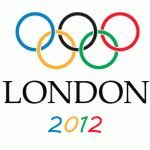 One of the most exciting features of the 2012 Olympics in London has been the performance of able people who are disabled. Even before the opening ceremony, Im Dong Hyun from South Korea, won the gold medal in archery and set a world record with an almost perfect score (699 out of 700). Im Dong Hyun is legally blind. Then, at the opening ceremony, Dame Evelyn Glennie, the Scottish percussionist, led a group of musicians in providing the sound track for the Industrial Revolution/Pandemonium sequence that ended with the forging of the five Olympic rings in golden light high over the stadium. Glennie is considered by many to be the best percussionist in the world, and she is profoundly deaf. Then, this week, South African sprint runner Oscar Pistorius (nicknamed “Blade Runner”), made it to the semi-finals in the men’s 400 meter race. Pistorius is a double-amputee who runs on artificial limbs.
One of the most exciting features of the 2012 Olympics in London has been the performance of able people who are disabled. Even before the opening ceremony, Im Dong Hyun from South Korea, won the gold medal in archery and set a world record with an almost perfect score (699 out of 700). Im Dong Hyun is legally blind. Then, at the opening ceremony, Dame Evelyn Glennie, the Scottish percussionist, led a group of musicians in providing the sound track for the Industrial Revolution/Pandemonium sequence that ended with the forging of the five Olympic rings in golden light high over the stadium. Glennie is considered by many to be the best percussionist in the world, and she is profoundly deaf. Then, this week, South African sprint runner Oscar Pistorius (nicknamed “Blade Runner”), made it to the semi-finals in the men’s 400 meter race. Pistorius is a double-amputee who runs on artificial limbs.
These are milestone events. They signal to the world that people with disabilities can do amazing things, even within their specific area of disability. Most of us grew up with stereotypes of people with disabilities as “less than” so-called normal people. Hopefully, the accomplishments of this new breed of exceptionally able disabled individuals will encourage young people everywhere to cultivate more positive images of individuals with disabilities, and inspire people with disabilities to believe: “If they can do it, so can I!”
For more information about a strength-based approach to people with disabilities, see my book The Power of Neurodiversity: Unleashing the Advantages of Your Differently Wired Brain (published in hardcover as Neurodiversity)
This article was brought to you by Thomas Armstrong, Ph.D. and www.institute4learning.com.
Follow me on Twitter: @Dr_Armstrong



















